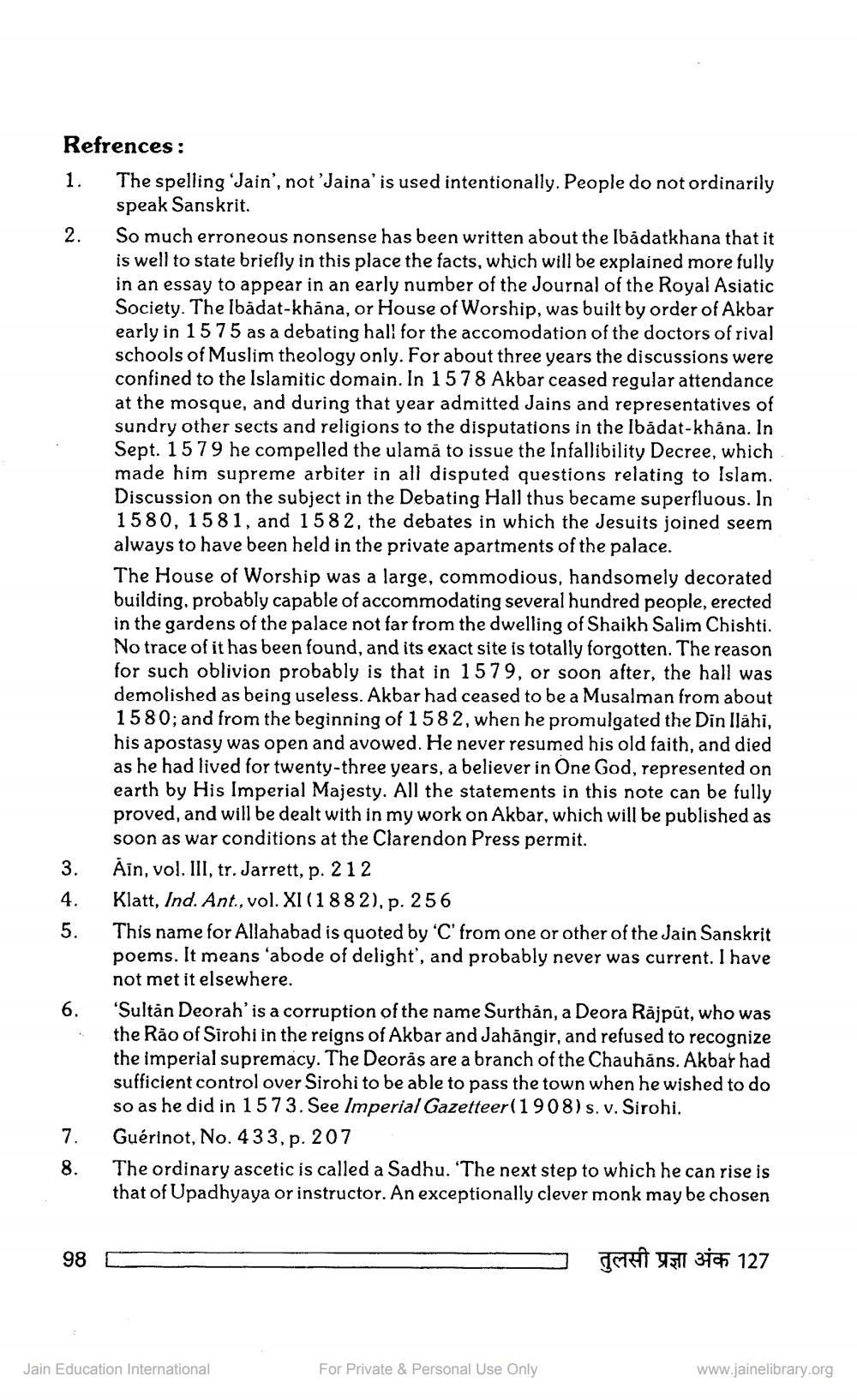________________
Refrences:
The spelling 'Jain', not 'Jaina'is used intentionally. People do not ordinarily speak Sanskrit. So much erroneous nonsense has been written about the Ibadatkhana that it is well to state briefly in this place the facts, which will be explained more fully in an essay to appear in an early number of the Journal of the Royal Asiatic Society. The Ibadat-khāna, or House of Worship, was built by order of Akbar early in 15 75 as a debating hall for the accomodation of the doctors of rival schools of Muslim theology only. For about three years the discussions were confined to the Islamitic domain. In 1578 Akbar ceased regular attendance at the mosque, and during that year admitted Jains and representatives of sundry other sects and religions to the disputations in the Ibadat-khảna. In Sept. 1579 he compelled the ulamā to issue the Infallibility Decree, which made him supreme arbiter in all disputed questions relating to Islam. Discussion on the subject in the Debating Hall thus became superfluous. In 1580, 1581, and 1582, the debates in which the Jesuits joined seem always to have been held in the private apartments of the palace. The House of Worship was a large, commodious, handsomely decorated building, probably capable of accommodating several hundred people, erected in the gardens of the palace not far from the dwelling of Shaikh Salim Chishti. No trace of it has been found, and its exact site is totally forgotten. The reason for such oblivion probably is that in 1579, or soon after, the hall was demolished as being useless. Akbar had ceased to be a Musalman from about 1580; and from the beginning of 1582, when he promulgated the Din Ilahi, his apostasy was open and avowed. He never resumed his old faith, and died as he had lived for twenty-three years, a believer in One God, represented on earth by His Imperial Majesty. All the statements in this note can be fully proved, and will be dealt with in my work on Akbar, which will be published as soon as war conditions at the Clarendon Press permit. Ain, vol. III, tr. Jarrett, p. 212 Klatt, Ind. Ant., vol. XI (1882), p. 256 This name for Allahabad is quoted by 'C' from one or other of the Jain Sanskrit poems. It means 'abode of delight', and probably never was current. I have not met it elsewhere. 'Sultan Deorah' is a corruption of the name Surthân, a Deora Rajput, who was the Rão of Sirohi in the reigns of Akbar and Jahāngir, and refused to recognize the imperial supremacy. The Deorås are a branch of the Chauhans. Akbar had sufficient control over Sirohi to be able to pass the town when he wished to do so as he did in 1573. See Imperial Gazetteer(1908) s. v. Sirohi. Guérinot, No. 433, p. 207 The ordinary ascetic is called a Sadhu. 'The next step to which he can rise is that of Upadhyaya or instructor. An exceptionally clever monk may be chosen
4.
Ki.
98
C
-
TM
4511 310
127
Jain Education International
For Private & Personal Use Only
www.jainelibrary.org




